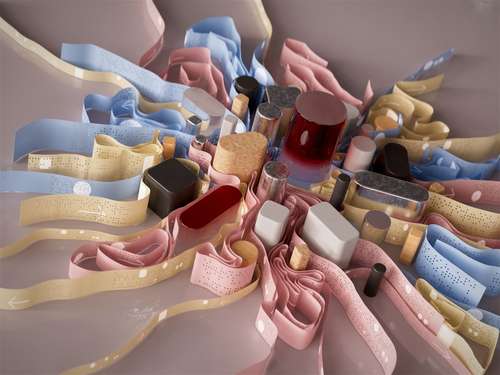It’s fascinating to think that something as small as gut bacteria might play a big role in heart disease. Lately, there has been a buzz about the idea that the tiny organisms in our digestive system are sending out health signals that could warn us about upcoming cardiovascular issues. This isn’t just science fiction; emerging research shows a real connection between our microbiome and our heart health. It feels almost personal, as if our bodies are whispering hints about what’s really happening inside us.
Have you ever wondered if the state of your gut health might be silently impacting your heart? Imagine if the microbial community in your belly could be a natural indicator of cardiovascular well-being. It’s a topic that’s stirring up lots of conversations among experts and everyday people alike, as new studies point to the gut-heart connection being a significant marker in understanding chronic disease markers and disease indicators.
Understanding the Link Between Gut Bacteria and Heart Disease
In this section, we explore how changes in gut bacteria can be more than just a sign of digestive troubles. They might actually be linked to heart disease. This connection makes you think about the role of intestinal flora in overall health and specifically in cardiovascular health.
The human gut microbiota is a bustling community that plays a crucial role in digestion, metabolism, and even immune responses. When these communities shift, it might indicate a disturbance that goes beyond stomach upset. Many scientists believe that this imbalance, often referred to as dysbiosis, could potentially create chronic inflammation. This inflammation is a known risk factor for coronary artery disease and other heart conditions. By checking the balance of gut bacteria, you might be getting a sneak peek into what could be brewing in your cardiovascular system.
Some people describe the gut as a second brain, but it might also be considered a second heart. The lively world of microbiome changes is showing us that the status of our gut health could be a significant disease indicator. Whether you're already mindful of your diet or new to these health signals, understanding the gut-brain axis and gut-heart connection can truly change how you approach your health routines.
Key Research Findings on Microbiome Changes
This section dives into some eye-opening research findings that spotlight specific bacterial species linked to heart disease. The results may reshape how we look at aging, coronary artery disease, and new preventive measures in cardiovascular health.
Recent studies indicate that certain types of gut bacteria are more prevalent in people with coronary artery disease. These research initiatives have identified bacterial species that might trigger or exacerbate heart disease conditions. The link is complex, involving not only inflammation but also the interplay between the gut microbial community and the body’s metabolic processes. When our intestinal flora experiences an imbalance, the risk of various chronic diseases, including heart disease, may increase.
It’s like discovering that your car engine is leaking oil—a sign that something isn’t right and needs attention before a breakdown happens. Much like you would check your engine lights, researchers are now paying close attention to the microbial signals coming from our gut. Emerging data suggests that probiotic impact and the use of beneficial bacteria could influence these dangerous pathways. Experts in the cardiovascular field are beginning to believe that monitoring microbiome changes might even act as an early warning system for heart disease.
Some early perspectives in the field have been echoed by leaders in nutritional science who mention that understanding these shifts is crucial. The study of the gut microbiota has grown exponentially in the past few years, and with it, our understanding of chronic disease markers and how they can influence heart health has expanded dramatically.
Exploring Future Strategies to Improve Cardiovascular Health
Building on the current findings, we now look at potential strategies aimed at boosting cardiovascular health by targeting changes in gut bacteria. This section is all about how these insights could lead to innovative approaches for managing heart disease.
Imagine if your daily choices, like including specific probiotics in your diet or modifying your food intake, could help maintain the balance in your gut microbiota. The idea of a probiotic impact on heart health might sound too simple, but emerging research suggests that such measures could be more effective than previously thought. For instance, scientists are exploring whether dietary adjustments can encourage the growth of beneficial bacteria that might reduce inflammation and support cardiovascular stability.
The gut-heart connection opens up a whole new realm of prevention and treatment possibilities. It’s a bit like having an early warning system—a subtle email from your body telling you to pay attention. As research continues, personalized approaches to diet and microbiome management might become key parts of a broader strategy to reduce the risks associated with coronary artery disease and other chronic conditions.
You might recall hearing about other chronic disease markers such as high blood pressure or cholesterol; now, gut bacteria join the ranks as a potential indicator of heart health. It speaks to a more personalized medicine approach, where monitoring your gut health could become a standard part of annual check-ups. This holistic view doesn’t just focus on lowering cholesterol levels but emphasizes nurturing the entire ecosystem inside you.
Wrapping It Up: The Future of the Gut-Heart Connection
This final section ties together the essential points: shifting gut bacteria could be an invaluable sign of underlying heart disease. Keeping an eye on your gut health might one day be as routine as measuring blood pressure. Research is ongoing, and although we’re still piecing together the puzzle, these findings highlight the crucial role the microbiome plays in cardiovascular health.
In conclusion, it’s clear that the discussion surrounding gut bacteria and heart disease is more than just academic. Real people face the realities of chronic disease markers every day, and understanding the science behind the gut-heart connection could lead to new strategies for prevention and treatment. Whether you’re already committed to a healthy lifestyle or just starting to pay attention to gut health, these insights remind us that our bodies are a network of interconnected systems, each potentially hinting at our overall health.
The idea that something as subtle as a shift in intestinal flora might signal heart health issues is both an inspiring and cautionary tale. So next time you consider your diet or your health routine, remember that even your gut bacteria might be talking—and it’s worth listening. Keep exploring, keep questioning, and remember that every healthy decision counts when it comes to safeguarding your heart.




